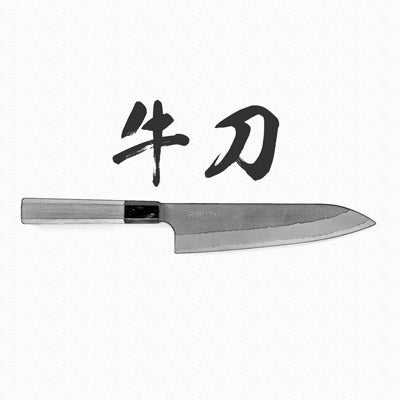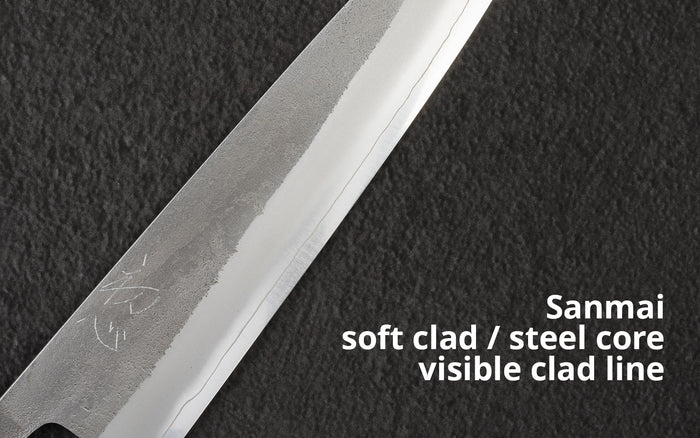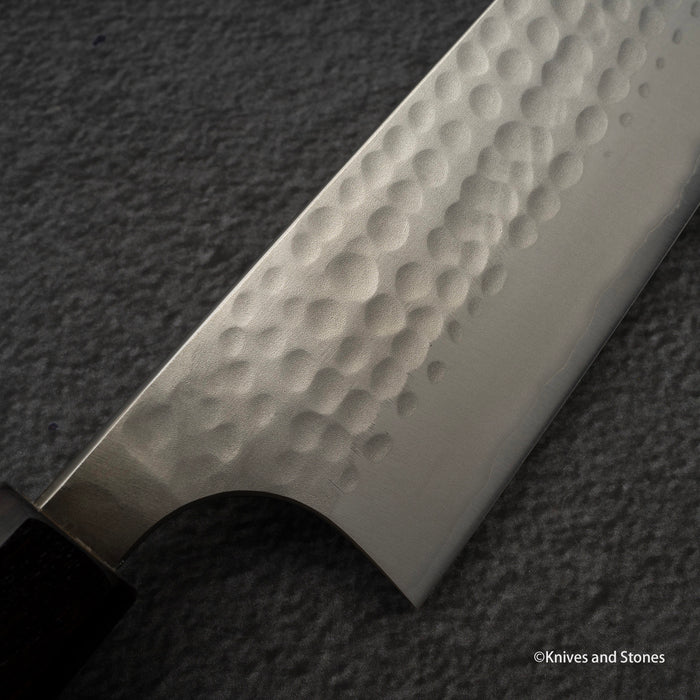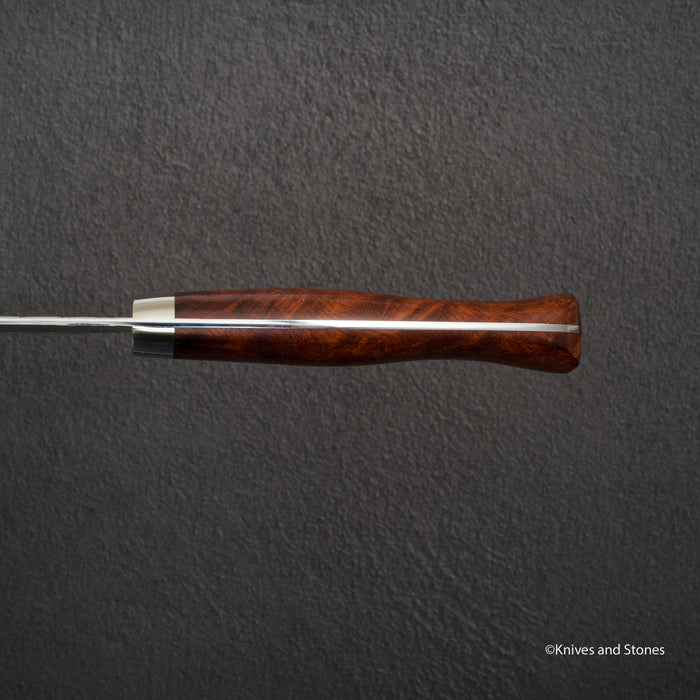Takeshi Saji SRS13 Gyuto 240mm Western Amboyna Handle
Takeshi Saji SRS13 Gyuto 240mm Western Amboyna Handle is backordered and will ship as soon as it is back in stock.
Couldn't load pickup availability
Detailed Specifications
| Line | Takeshi Saji SRS-13 Western |
| Profile | Gyuto / Chefs Knife |
| Bevel Type | Double Bevel |
| Weight | 244 g 8.61 oz |
| Edge Length | 240 mm .9.45 inch |
| Heel Height | 51 mm .2.01 inch |
| Width @ Spine | 1.9 mm 0.07 inch |
| Width @ Mid | 1.9 mm 0.07 inch |
| Width @ 1cm from Tip | 0.6 mm 0.02 inch |
| Steel | SRS-13 | Powdered Stainless |
| Blade Construction | Sanmai - Stainless Clad |
| Hardness (HRC) | 63 - 64 |
| Surface Finish | Tsuchime |
| Handle | Coke-bottle Shaped Western |
| Region | Takefu |
| Best for |
|

| Pros | Cons |
|
|
|
Care Instruction
- Don't cut hard things! Japanese knives are brittle so bone hacking is a NO NO!
- Wash with neutral detergent after use, and wipe dry;
- Please don't wash knife with dishwasher, it will damage the wood handle;
- Be careful not to leave the knife close to a heat source for a long time;
- It is a lot more dangerous to cut with a blunt knife than a sharp knife!
- It is best to sharpen a Japanese knife regularly on a waterstone.



















